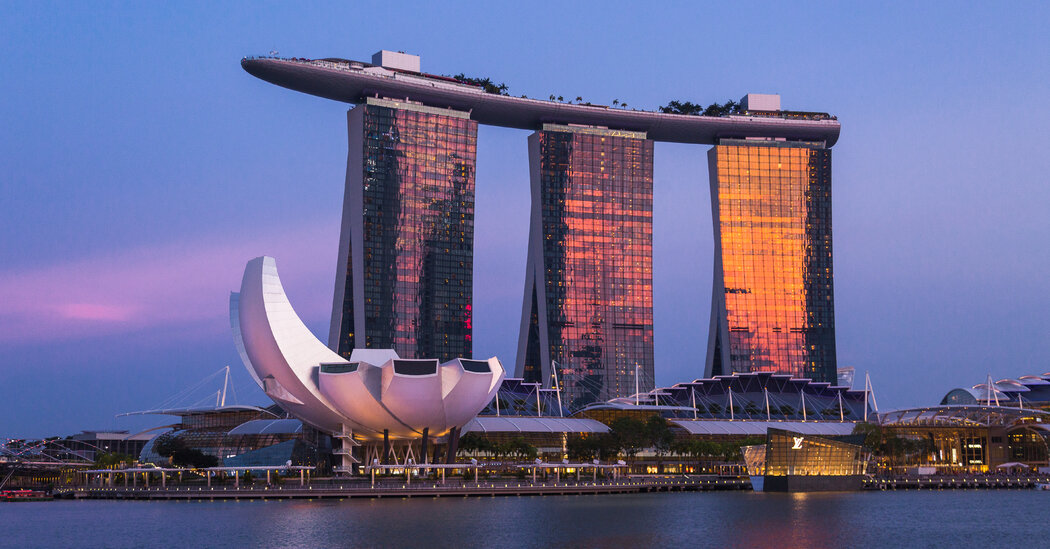When newly married Marissa, 28, and Sean Cavenagh, 31, of Chicago decided to spend their honeymoon in Southeast Asia this summer, they planned to stay in Airbnbs and modest hotels while wending their way through Singapore, Thailand, Vietnam and Indonesia. But when they discovered the astounding bargains to be had at some of the most luxurious properties in these destinations, they radically upgraded.
“We were going to Airbnb a place in Singapore when we saw the Marina Bay Sands was offering a two-for-one night special, so we stayed there instead,” said Mrs. Cavenagh, who ended up paying $300 per night per room, a far cry from the $600-and-over rooms normally went for in 2019, before Covid. “They then upgraded us to an incredible suite on the 35th floor.” Their suite connected to the Sand’s famous rooftop pool that straddles the resort’s three skyscrapers like a flying saucer.
On the Thai island of Koh Samui they stayed for 11 days in a seaside villa adjoining the gin-clear waters of the Crystal Bay Yacht Club Beach Resort for a total of $280, which breaks down to about half the daily rate for a hotel room there. “It’s crazy,” Mr. Cavenagh said. “We’re paying less for the best luxury hotels in the world than for a Red Roof Inn in the U.S.”
While inflation has made the price of travel in the United States exorbitant, the dollar is king in Southeast Asia. For example, the U.S. dollar is currently worth around 35 Thai baht, or 17 percent more than in January 2020, before the pandemic.
Tourist-dependent countries like Vietnam, Cambodia, Thailand and Indonesia are emerging from Covid isolation to find that their biggest market, China, is still in semi-lockdown, and the rest of the world is only waking up to the fact that these countries are welcoming back visitors. Despite easy e-visas and the lifting of quarantines and Covid testing requirements, airports like Bangkok’s Suvarnabhumi seem empty as planes are parked nose-to-tail on unused runways. To attract returning tourists, many of Southeast Asia’s best hotels, resorts and restaurants have vastly reduced their prices against an already strong dollar.
This state of affairs has been a godsend to American tourists who are starting to trickle in.
“We were only going to stay in hostels,” said Julie Jones, 34, who quit her consulting job in Dallas to backpack around Asia for the summer with two friends. “But when we see how cheap some of these famous hotels are, we’ll happily…
Click Here to Read the Full Original Article at NYT > Travel…
